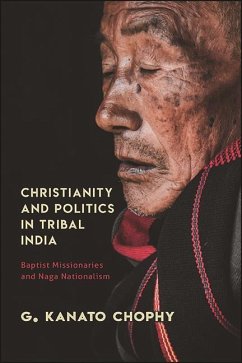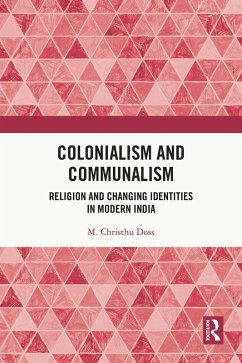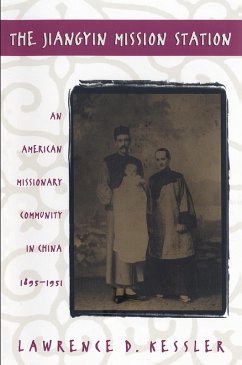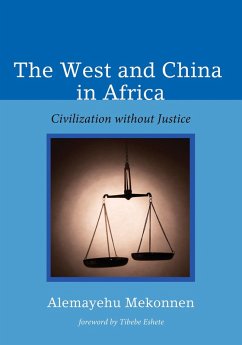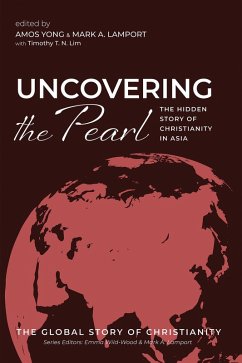
Karma and Grace (eBook, ePUB)
Religious Difference in Millennial Sri Lanka

PAYBACK Punkte
13 °P sammeln!
Winner, 2024 Clifford Geertz Prize in the Anthropology of Religion, Society for the Anthropology of ReligionAround the turn of the millennium, Pentecostal churches began to pepper majority-Buddhist Sri Lanka, setting off a sense of alarm among Buddhists who saw Christianity as a neocolonial threat to the nation. Rumors of foul play in the death of a Buddhist monk, as well as allegations of proselytizing in the aftermath of the 2004 tsunami and during the final stages of civil war, spurred nationalist anxieties, moral panics, and even episodes of violence by Buddhists against Christians suspect...
Winner, 2024 Clifford Geertz Prize in the Anthropology of Religion, Society for the Anthropology of Religion
Around the turn of the millennium, Pentecostal churches began to pepper majority-Buddhist Sri Lanka, setting off a sense of alarm among Buddhists who saw Christianity as a neocolonial threat to the nation. Rumors of foul play in the death of a Buddhist monk, as well as allegations of proselytizing in the aftermath of the 2004 tsunami and during the final stages of civil war, spurred nationalist anxieties, moral panics, and even episodes of violence by Buddhists against Christians suspected of facilitating "unethical" conversions.
Through vivid ethnography and keen observations of media events, Karma and Grace illuminates disputes over religious freedom and pluralism amid the rise of charismatic Christianity in Sri Lanka. Neena Mahadev explores the dueling efforts of Buddhist nationalists and Christian evangelists to reshape Sri Lanka's religious, economic, and political landscapes. She considers theological and political impasses between Buddhism's vast timescales of karma and Christians' promises of the immediacy of their God's salvific grace. While Christian missions spread "the Good News," subsets of Buddhists produced bad press, sting operations, and disparaging media to impede born-again churches from taking root. In gripping detail, Mahadev recounts how modernist and traditionalist Theravada Buddhists, Pentecostal newcomers, long-established Christian denominations, local deity and spirit cults, and the innovations of mavericks intermingle in a multireligious public sphere. Even amid trenchant conflicts, Karma and Grace demonstrates that social proximity between rivals is also conducive to religious experimentation and the ambiguities of identity that allow Sri Lankans to live with difference.
Around the turn of the millennium, Pentecostal churches began to pepper majority-Buddhist Sri Lanka, setting off a sense of alarm among Buddhists who saw Christianity as a neocolonial threat to the nation. Rumors of foul play in the death of a Buddhist monk, as well as allegations of proselytizing in the aftermath of the 2004 tsunami and during the final stages of civil war, spurred nationalist anxieties, moral panics, and even episodes of violence by Buddhists against Christians suspected of facilitating "unethical" conversions.
Through vivid ethnography and keen observations of media events, Karma and Grace illuminates disputes over religious freedom and pluralism amid the rise of charismatic Christianity in Sri Lanka. Neena Mahadev explores the dueling efforts of Buddhist nationalists and Christian evangelists to reshape Sri Lanka's religious, economic, and political landscapes. She considers theological and political impasses between Buddhism's vast timescales of karma and Christians' promises of the immediacy of their God's salvific grace. While Christian missions spread "the Good News," subsets of Buddhists produced bad press, sting operations, and disparaging media to impede born-again churches from taking root. In gripping detail, Mahadev recounts how modernist and traditionalist Theravada Buddhists, Pentecostal newcomers, long-established Christian denominations, local deity and spirit cults, and the innovations of mavericks intermingle in a multireligious public sphere. Even amid trenchant conflicts, Karma and Grace demonstrates that social proximity between rivals is also conducive to religious experimentation and the ambiguities of identity that allow Sri Lankans to live with difference.
Dieser Download kann aus rechtlichen Gründen nur mit Rechnungsadresse in A, D ausgeliefert werden.




